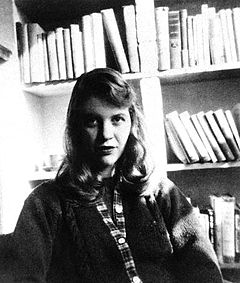Good Writers and Great Writers
“If writers wrote as carelessly as some people talk, then adhasdh asdglaseuyt[bn[ pasdlgkhasdfasdf.”
― Lemony Snicket, Horseradish: Bitter Truths You Can't Avoid

“A non-writing writer is a monster courting insanity."
[Letter to Max Brod, July 5, 1922]”
― Franz Kafka
Just my take
Some people are good writers. They write well because they have been taught how to write cohesive stories or articles. They have the capacity to bring intrigue into the audience without the distraction. They read more than most, and they have excelled in school and life. They write because it may be easy for them and in some ways, it may be instinctive and helpful. They write very well, and they are highly sought after, most of the time.
Some people are great writers. They are born with the ability to paint masterpieces with their words and cannot survive without creating works of art no matter the size of the canvas. For these writers, school is merely an annoyance that perfects the mechanics and grammar, though many have no degrees of which to speak. For these writers, the continuity comes as easily as blinking. These are the writers borne of the pen. They are incapable of silencing the words that formed in the womb and fight, eternally, to drip from the pen of this ethereal writer. Though it is not effortless, it is opulent impulse that drives them, attaches to them and distracts them from all else.
The good writer is usually expert at production and deadlines. He is organized and socially charming. The good writer is well-versed, well-rounded and more often than not, well-spoken. He can be handed a topic and build upon it, painlessly, and certainly without much noticeable flaw.
This is not the life of the born writer. The greatness of the born writer comes from discombobulating thought processes. Compartments within that cannot sustain under pressure without the release of each tedious emotion or consideration. The born writer longs for discipline but settles for ambiguity. Articulate at times, he is rarely as well-spoken as the written word he manufactures. A great writer cannot be taught how to write, for it is inherent. With the greatness, though, comes a price; a toll of which is paid through anguish. Precarious emotional and mental distress seems to shadow the born writer. A sorrow that proves debilitating at times, but is the energy from which the great writer draws breath. This grief is unprompted and seemingly unwarranted, but without it, words become trapped in the darkness of this writer. With a desk covered in possibilities and never-agains, the great writer only thrives in the comely disaster of bedlam.
The good writer sings a song for the world to enjoy. Vivid and frequently wrapped in astounding delicacy, the good writer’s words mirror the disciplined glare of his life. The readers appreciate more, this writer, for in him they can relate. Smooth edges are always interpreted much easier than rough edges, making the good writer much more than a novelty. Always the charming charismatic, he can spin a tale that is created to captivate the masses. When the tale is complete, he instinctively puts out the lights and climbs into bed, shutting off his day after what is perhaps an abbreviated evaluation of a job well done- something the great writer cannot do.
The great writer, sitting in a stump of a chair, combats himself over a dirty keyboard and tumultuously inhabited desk. He is compulsively late, and there is a pungent after-smell to his particular time and space. The great writer struggles between mental states and foolishly disobeys instinct. Fluctuating between outbursts of indignation and reconciliation, this writer spits out a lifetime of experiences in every sentence. This writer demands a tempo not always found with the keystrokes. His intrusive sadness weighs his fingertips and suckles his creativity, always leaving him dissatisfied as he sits in the interim. Then, as if the majestic gods hand over their grace, the great writer ends the confused self-bickering by finally uncovering the words. At this point, they spill from his fingers and tongue, dripping to the paper, embracing the blood and sweat that has laid dormant for hours awaiting their mate.
A writer is most certainly not taught but born. It is the difference between occupation and self. Each of us knows, without question, which of the two we are.
“A writer should write what he has to say and not speak it.”
― Ernest Hemingway








